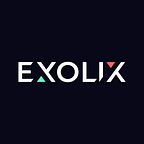DeFi — what is the power?
DeFi is short for “decentralized finance”. They are the ones that have been exciting the hearts of crypto enthusiasts for several years. Let’s try to figure out together what is their power? Why have they undertaken such an important mission of transforming the entire global financial system? Is this really our future?
DeFi is a digital financial structure, where instead of a central regulator, is a smart contract on the blockchain. The most popular contract is Ethereum. The whole system comes down to excluding intermediaries from the territory of issue, circulation, storage, and investment of financial assets.
The traditions of the world economic system have always assumed the presence of a central governing body in any area of finance. This governing body, as a rule, deals with the release of funds into circulation, and then the management and regulation of all cash flows. However, in the process of increasing trust in the control center, as well as scaling the financial system, such a body always becomes the owner of a large amount of power and authority. It is these stones that the concept of centralizing finance may trip over. This is what we see today.
The DeFi system offers a complete transformation of the current concept. The basis of the new concept is the complete decentralization of the financial market by eliminating intermediaries, the availability of financial assets, and information about their movements to all participants in the system.
A lot of economists believe that the emergence of decentralized finance is a natural reaction of the global financial economy to the crisis of 2008, resulting in the complete failure of the unified regulation system. The situation contributed to the appearance of a new ecosystem, and also favored the development of new technologies, namely the blockchain.
Globally, the DeFi system consists of two main blocks — DApps and DeFi tokens. Apps and tokens operate within a single ecosystem using a smart contract. A smart contract implies the performance of certain actions when certain conditions occur. DeFi implements various financial instruments, among of them the most popular are: Lending, Payment Services, Stablecoins, Decentralized Exchanges (DEX), Insurance, Prediction Markets.
- Lending — DeFi involves the creation of a fully-fledged digital lending institution that can provide people with all the financial services they need, but without intermediaries.
- Payment services — the use of the DeFi system provides a reduction in transaction support costs and opens up the opportunity to complete instant crypto transactions.
- Stablecoins — DeFi allows the creation and use of cryptocurrencies, which have the main feature of minimizing price volatility by linking its value to the underlying asset.
- Decentralized Exchanges (DEX) are platforms that decentralize the basic functions of an exchange, including trading / exchanging assets, reconciling orders, and placing deposits. All parts of the exchange form a distributed network that eliminates the need for intermediaries and enables trading through smart contracts.
- Insurance — providing a wide range of services, including insurance against protocol hacking, technical and other errors that can lead to loss of funds, the bankruptcy of the issuer of tokens or stablecoins, and many others. With the help of DeFi insurance, you can get your funds back in case of problems with the project.
- Prediction Markets — DeFi markets involve determining the likelihood of future events, but without intermediaries. Any user can see which outcome of events more people believe.
On the one hand, the perspective for the growth of decentralized finance is obvious, but today there are many complex issues in this area that do not allow it to gain even greater dynamics in development.
One of the main problems is the lack of unified and comprehensive solutions that are understandable and accessible to users. The paradox is that the old system, which so badly needed the elimination of the intermediary now needs unification and indirect centralization in the scope. It is remarkable that a huge number of industries were able to create their own ecosystem and show results within the framework of decentralization, but a narrow focus simply does not allow concentrating a sufficient amount of resources for large-scale growth. The need to have separate coins for certain types of transactions in DeFi applications provokes a huge number of transactions for the purchase of these coins. Such movements practically cover an advantage of reducing the cost of supporting transactions in the centralized system, since it requires large commission fees to carry out the necessary empty transactions.
We don’t know if our future will be connected with DeFi. However, we know for sure that this is our present! Today you can become a part of this environment, you can work on the shortcomings and develop the system, you can already invest and get tremendous results.
